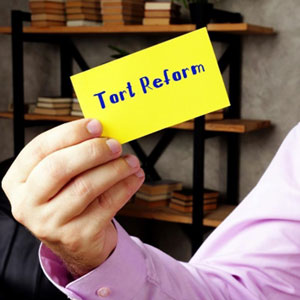Call Now To Learn More About Your Legal Rights
(479) 750-2334(Calls Answered 24/7) OR Text Us:
(479) 358-1998
Tort reform refers to legislative efforts aimed at restricting the ability of injured individuals to recover full compensation through personal injury lawsuits. These efforts are often supported by large corporations and insurance companies. They’re strategically framed in such a way that gets people to support something that actually works against their best interest, that is, as measures to curb excessive payouts and frivolous lawsuits. This is the opposite of reality, however.
One common misconception associated with tort reform is the portrayal of certain high-profile cases, such as the McDonald’s hot coffee case of the 1990s, in a sensationalist manner to suggest that injured people are unjustly receiving large sums of money, almost to the point where they actively try to be injured just to receive such a large sum of money. This narrative is used to sway public opinion and garner support for tort reform measures.
However, in reality, tort reform often involves greatly limiting the amount of money that injured parties can receive, thereby potentially depriving them of fair compensation for their injuries and losses. This can include capping damages for pain and suffering, limiting punitive damages, or imposing stricter criteria for filing lawsuits.
While proponents of tort reform argue that it helps reduce insurance premiums and litigation costs, opponents, including many personal injury lawyers, argue that it undermines the rights of injured individuals to seek justice and fair compensation for their injuries. They assert that such reforms disproportionately benefit insurance companies and corporations at the expense of injured victims.
When we explain this in detail to our clients, and they have a better sense of these attempts to limit the amount of money they could get when making a claim, they change their minds and become adamantly against it. We want to continue to educate people about the realities of these highly consequential efforts at reforming an incredibly important aspect of Arkansas law.
The disadvantages of tort reform in Arkansas primarily revolve around the limitations it imposes on the compensation that injured plaintiffs can receive. One significant issue is the potential imposition of caps on damages, such as the proposed $250,000 limit on compensation for wrongful death cases. This arbitrary cap does not allow to account for the specific circumstances and losses suffered by the victim and their loved ones, leaving them potentially inadequately compensated for their losses.
Imposing such caps means tort reform undermines the fundamental principle of allowing juries to determine damages based on the specific facts of each case. Instead, it places the determination of value in the hands of legislators or special interest groups, who may not fully grasp the extent of the harm suffered by the plaintiffs, let alone care to entertain it, to begin with.
Another disadvantage is that tort reform may lead to a lack of accountability for negligent parties, including insurance companies, large corporations, and trucking companies. Knowing that their financial liability is limited, these entities may be less incentivized to prioritize safety measures and may engage in riskier behavior, ultimately putting the public at greater risk of harm. You can observe this in some states that have implemented tort reform in various ways, such as Texas and Florida. Things haven’t quite improved as the bill was sold, however.
Proponents of tort reform argue that it helps reduce litigation costs and insurance premiums, but this is only part of the picture and a distorted one at that. Opponents highlight the true impact it will have on those who seek just compensation for their injuries, warning that these reform attempts, if realized, will undermine the rights of injured plaintiffs and allow negligent parties to evade full accountability for their actions.
For more information on Tort Reform In Arkansas State, an initial consultation is your next best step. Get the information and legal answers you are seeking by calling (479) 750-2334 today.